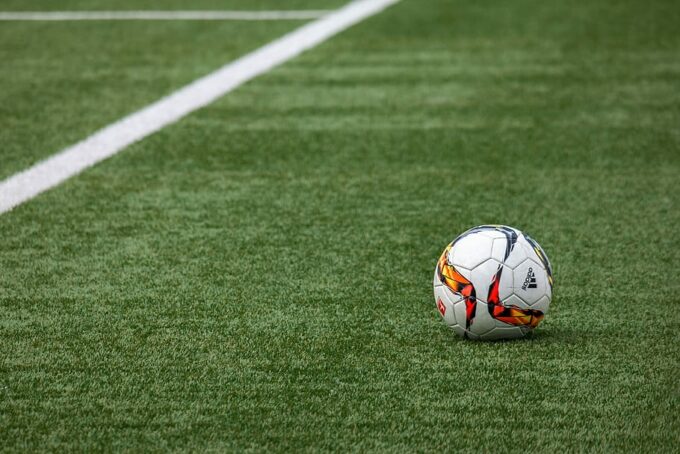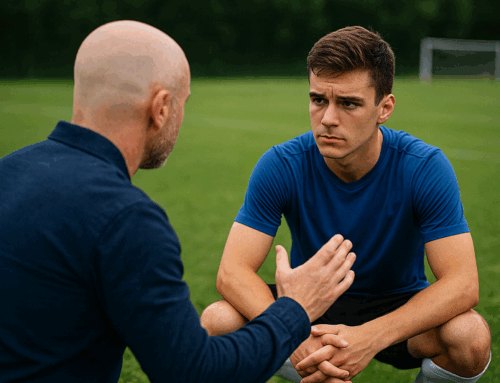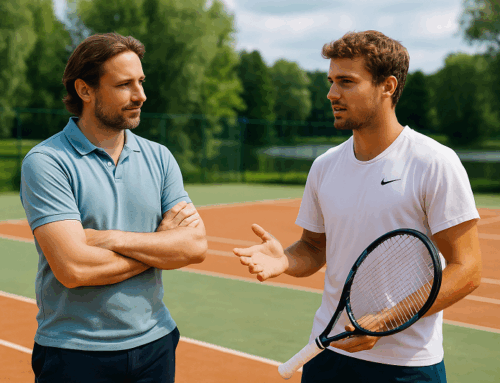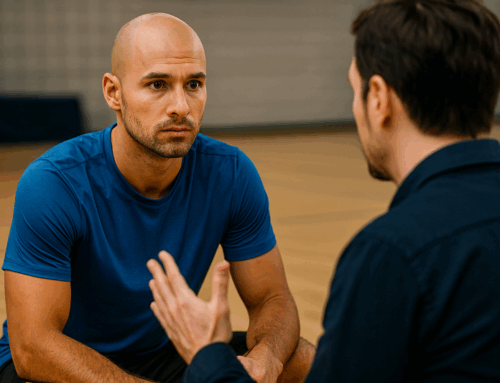Sport Psychology and Football: Mentally Rebuilding After Injury
Keywords: sport psychology and football, sports injuries
Introduction
In football, injuries are more than just a physical setback. They are often a mental transition—marked by uncertainty, emotional challenges, and a change in routine. And yet, few players receive proper psychological support during this crucial period.
Manuel Dupuis is a sport psychologist and mental coach at Psychosport, where he serves as the team’s football expert. He has over 20 years of experience working with professional footballers in Belgium and abroad. His career includes work with clubs like Sporting de Charleroi (7 years), Union Saint-Gilloise (4 years), and the ACFF, the French-speaking wing of Belgian football.
He works with players from across the Belgian league as well as with international professionals, both in person and online, in French and English, from top leagues such as England, Germany, and France.
In this interview, he shares his experience and practical tools for supporting injured footballers—helping them regain confidence, process emotions, and return to the pitch with full mental strength.
🎙 Interview with Manuel Dupuis, Sport Psychologist
Why is the mental side of injury recovery often overlooked?
When a player gets injured, they don’t just lose time on the pitch. They lose their daily rhythm—training, matches, the team environment, the adrenaline and natural highs that come with it all.
Some feel disconnected or uncertain about the future. Others stay positive but still face internal doubt. There’s also the fear of losing their spot on the team, which adds pressure.
This is why staying calm, supported, and confident is so important. The mental side plays a huge role in a healthy recovery process.
What kinds of emotions do injured players typically go through?
It varies. Some players feel frustration, sadness, or a sense of emotional withdrawal. Others don’t show it but still experience it internally. That’s all normal.
I always encourage them to acknowledge and express what they feel. Doing so helps them move forward more effectively. During long injuries, players may question their future or motivation. And when it’s time to return, there’s often
The key is to process what happened, mentally accept it, and rebuild confidence step by step.
What role does mental preparation play during physical rehab?
It’s a great opportunity for personal development. I check in regularly with the player, support their mindset, and offer tailored tools to keep them focused and motivated.
Mental imagery is especially powerful. A player can rehearse movements, visualize a session in detail, even imagine the weather, teammates, drills or match situations. This maintains their technical skills and tactical awareness—even without physical activity.
We also work on attention control, emotional regulation, and step-by-step preparation for returning to competition.
What specific tools do you use with injured players?
In addition to guided imagery, I often use concentration exercises, emotional anchoring techniques (to quickly trigger confidence or energy), and occasionally relaxation or mental reset exercises.
For example, during an anchoring session, I guide players to recall a match where they felt confident or powerful. Once they reconnect with that feeling, we associate it with a cue—like a word, gesture, or breath. With repetition, they learn to trigger that mental state on command, especially during stressful moments like their return game.
We also work on breathing techniques, recovery-focused mental routines, and preparation for high-pressure game situations.
How do you help players manage fear of re-injury or confidence loss?
The first step is to ensure the injury has been emotionally processed. If the player still holds onto the moment of the injury or feels fragile, we use techniques like guided imagery, EMDR, or sports hypnosis to work through it gently.
From there, we use positive visualization and scenario building to rebuild their connection with the game. The goal is to help them move freely and play with confidence, without hesitation or fear.
What role do the staff, coach, and family play in mental recovery?
An essential one. Staying connected with the team—watching training sessions, talking with the coach or physio—helps the player stay involved and avoid isolation.
The technical and medical staff are key allies, as is a qualified sport psychologist when available. Family and close friends also have a crucial role: just being present and supportive is sometimes more helpful than trying to fix things.
Can a player come back mentally stronger after an injury?
Absolutely. Many of the players I’ve worked with come back with greater self-awareness and new mental tools. They learn how to manage pressure, focus better, and take care of their mental and physical well-being.
Some use the time to reflect on their game, communication, or career path. Others make positive lifestyle changes—sleep routines, recovery habits, better preparation. With the right support, injury becomes a catalyst for growth.
Conclusion
An injury doesn’t have to be a pause—it can be a turning point. When approached with a full-body and mental strategy, it becomes a powerful opportunity for mental and athletic development. With the help of sport psychology, players don’t just return to play—they come back stronger, smarter, and more resilient.




